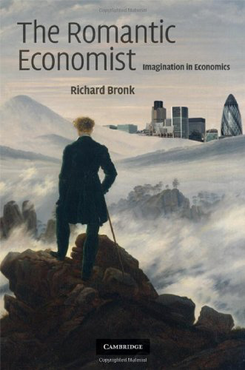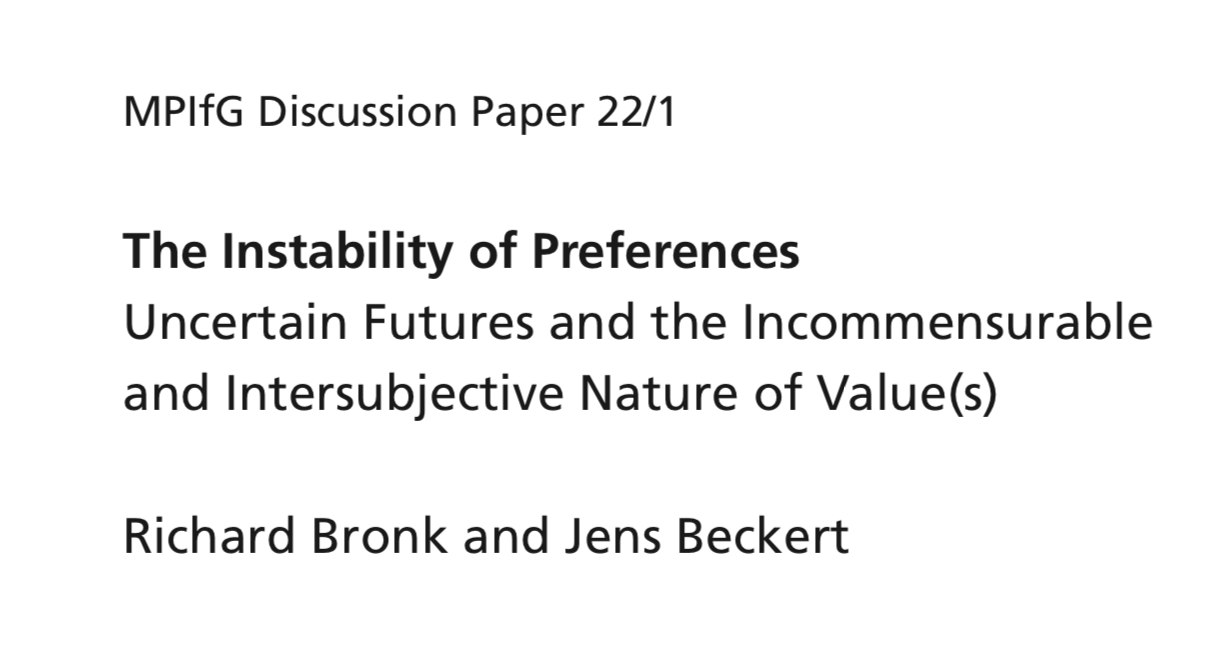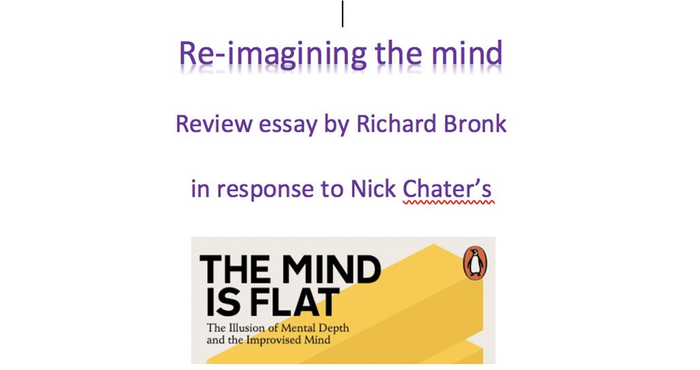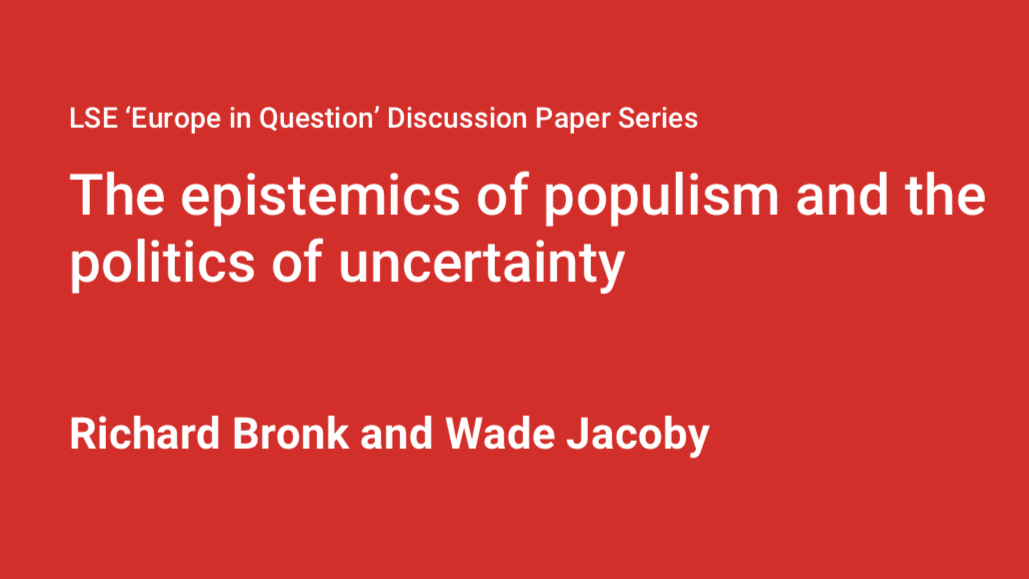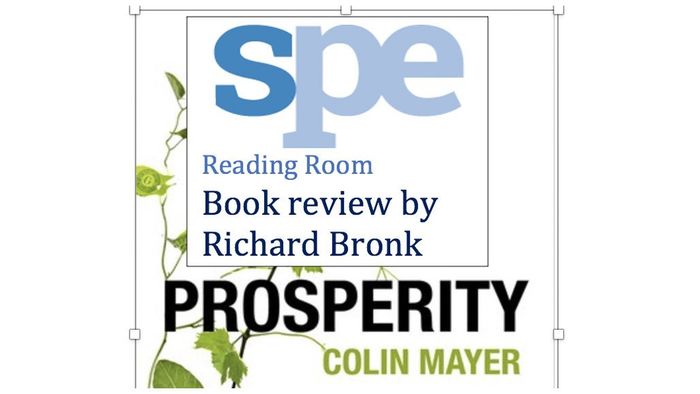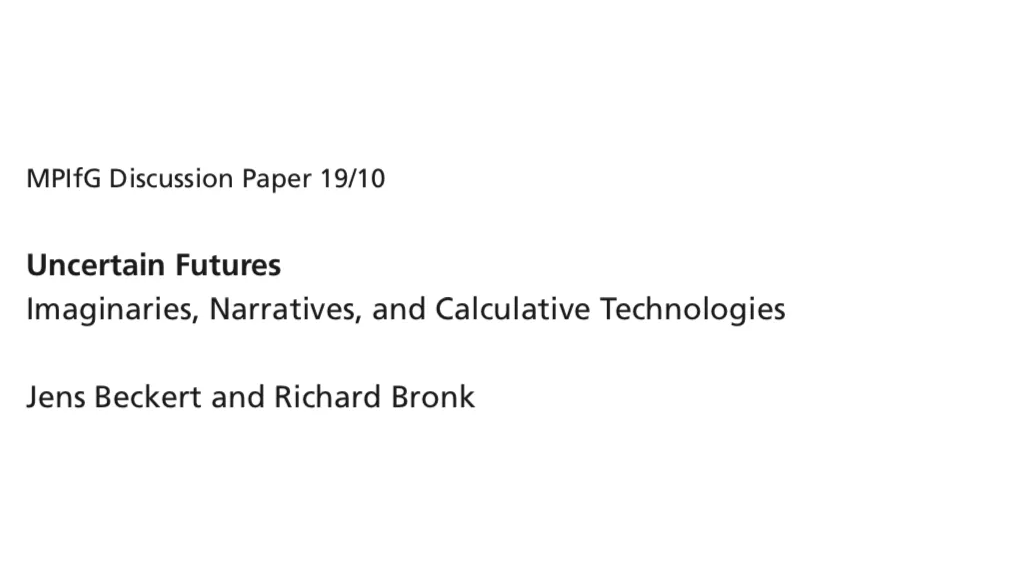Welcome to the website of Richard Bronk

For LSE research online list of publications between 1998 and 2020: click
here.
More recent publications shown on this site
Richard is author The Romantic Economist:Imagination in Economics (2009) and Progress and the Invisible Hand: the Philosophy and Economics of Human Advance (1998), as well as numerous academic papers, article, and blogs. He is co-editor with Jens Beckert of Uncertain Futures: Imaginaries, Narratives, and Calculation in the Economy (2018). Richard was educated in Classics and Philosophy at Merton College, Oxford, before working for seventeen years in finance and the Bank of England. From there he joined the European Institute of the London School of Economics and Political Science, where he taught political economy from 2000-2007 and was a visiting senior fellow until 2020. He is a fellow of the Royal Society of Arts. Recent writings focus on the role of imagination and fiction in economics, how decisions are made in conditions of uncertainty, the link between uncertainty and populism, and the instability of economic preferences. Richard is currently working on a new book about the imagination.
New and topical posts
'Fictional expectations and imagination in economics' by Jens Beckert & Richard Bronk
In chapter 17 of the new Cambridge Companion to Literature and Economics, Jens Beckert and Richard Bronk show how economics can learn lessons from literature and literary theory that help illuminate both economic behaviour and the nature of economics as a discipline. Submission text available here
The instability of preferences: uncertain futures and the incommensurable and intersubjective nature of value(s)
Richard Bronk and Jens Beckert challenge standard assumptions in economics about preferences by analysing the pivotal role of three aspects of preference formation in explaining capitalist dynamics.
Re-imagining the mind: why brain plasticity and working fictions imply the mind is far from flat
Read here a new review essay by Richard Bronk written in response to Nick Chater's 'The Mind is Flat: The Illusion of Mental Depth and the Improvised Mind' (Penguin, 2019).
Models, uncertainty and imagination in economics
In this talk at the Currency House Creative Convention in Sydney in July 2021, Richard Bronk explores the role of imagination in economics and economic behaviour and argues that business and policymaking are art forms involving creativity and judgment as well as analysis.
The epistemics of populism and the politics of uncertainty
Richard Bronk and Wade Jacoby discuss how populism and feeds off economic uncertainty and the tribal construction of facts. They also explain the dynamics of narrative coups.
The art of following the science
Richard Bronk discusses reasons for the recent erosion of public faith in scientific expertise and suggests ways to safeguard the legitimacy of science as a guide for government policy.
Book review: Richard Bronk on 'Prosperity' by Colin Mayer
Read here Richard's review published in July 2021 by the Society of Professional Economists discussing 'Prosperity: Better Business Makes the Greater Good' - a book advocating reform of corporate governance by Colin Mayer (published in paperback by Oxford University Press).
Imagining a resilient future of equity finance
In this recent Rebuilding Macroeconomics blog, Richard Bronk urges reform of the corporate tax regime to favour equity financing over debt leverage in order to increase the resilience of companies in the face of unpredictable threats to supply and demand.
Discussion of Uncertain Futures with Mark Blyth and Jens Beckert
In this Rhodes Center Podcast from October 2019, Mark Blyth from Brown University discusses themes from Uncertain Futures with its editors Richard Bronk and Jens Beckert.
Uncertain futures: imaginaries, narratives, and calculative technologies
Read here the joint lecture by Richard Bronk and Jens Beckert given in the Science and Democracy Lecture Series at the Harvard Kennedy School in October 2019.
